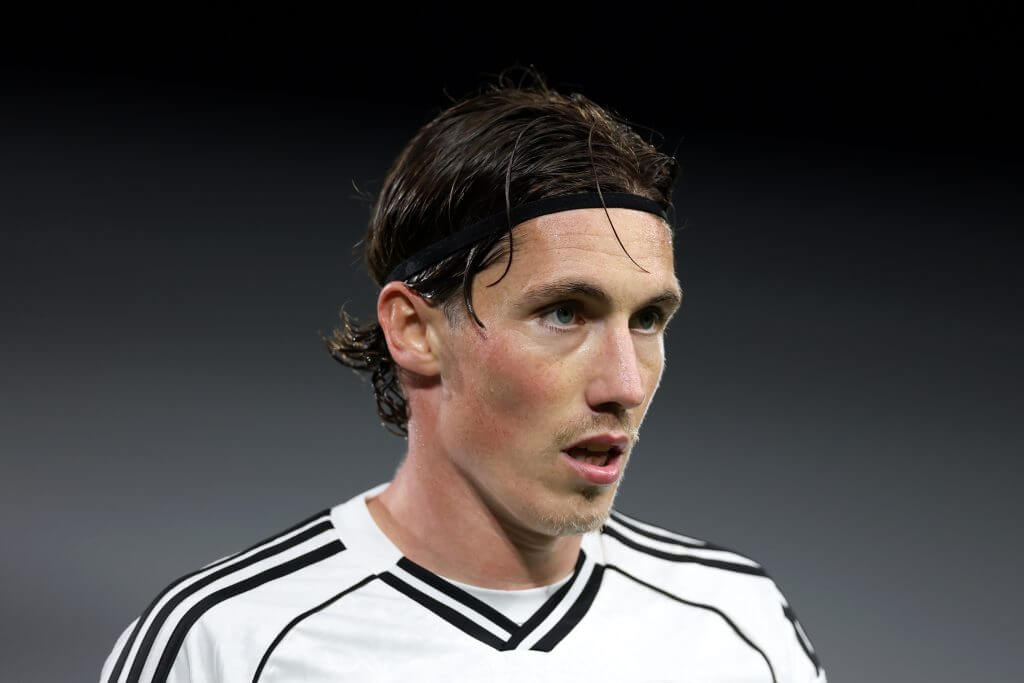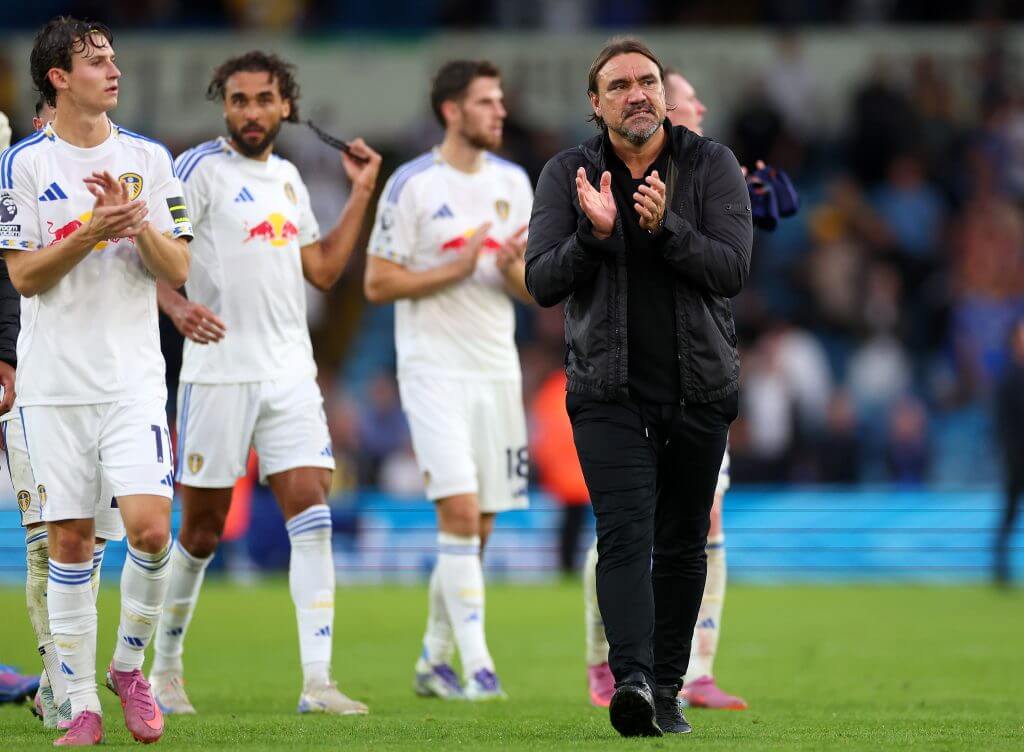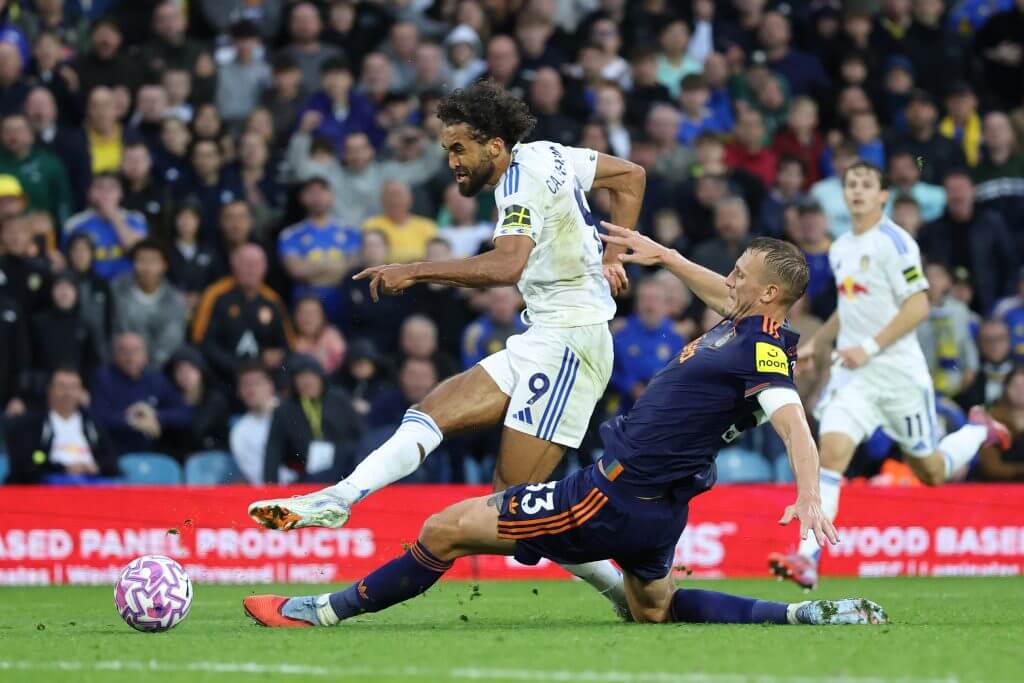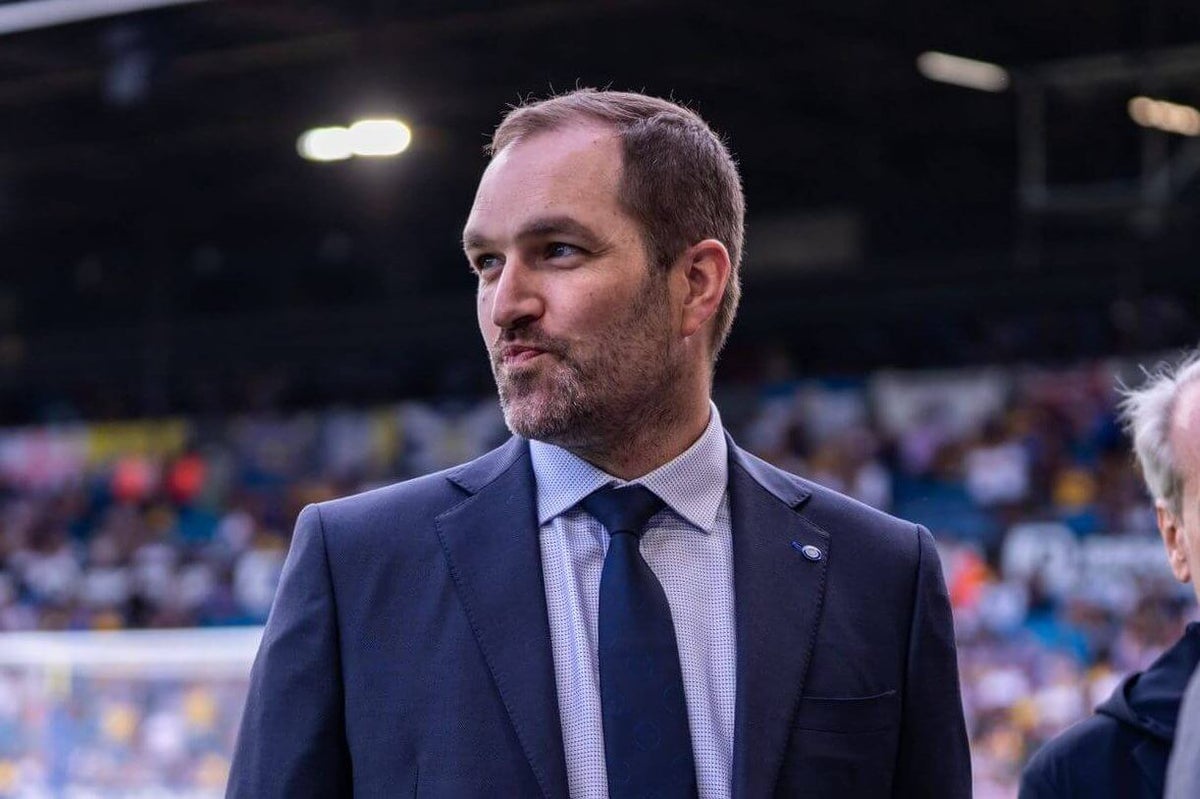Leeds United had a disappointing end to the transfer window, failing to get a final signing over the line. On Tuesday, less than 24 hours after the summer transfer window closed, Leeds’s managing director Robbie Evans spoke to the media about the summer window.
The newly-promoted side brought in 10 players, but Evans went into a range of topics, including the final day disappointment as they failed to bring in Harry Wilson, Leeds’s profit and sustainability regulations state of play, Illan Meslier’s future and more.
This is the transcript of the questions asked and the answers that Evans gave.
You didn’t bring any players in on deadline day, how do you explain that?
Evans: It’s pretty straightforward. We had a player (that we) targeted and this didn’t come through. We thought we had the right price.
We put the offer in above that price, (the) player was on board. Fulham couldn’t get it done. As has been reported already, we sent the deal sheet in after being given some indication it could work.
They were also doing three deals at once, coming in, yesterday. Fulham signed €85million of wingers yesterday. Whether it was out of time or they just decided not to sell, we don’t know, but it didn’t happen.
Thankfully for us, that’s why we did the overwhelming majority of our business before the last day of the window. We missed that one, and it’s kind of that simple.

Leeds tried to sign Harry Wilson from Fulham (Justin Setterfield/Getty Images)
How do you and Daniel (Farke) sum up the window as a whole for the fans?
Evans: I would say our headline for ourselves is a bad day at the end of a good window. When we set out, back in May, we had certain targets as far as key positions, key profiles, (and) estimates of the maximum available spend.
We checked all those boxes. We brought in all the key players, got them done early, all the key additions for Daniel, we got our top choice of the players that eventually moved, aside from Igor Paixao and Facundo Buonanotte.
Every single player we signed was our top choice. Nobody moved to different clubs we wanted more than the guys we got. In that respect, we feel very positive about it, and it’s a bit frustrating to have it end like it ended because that was the cherry on top for us.
It wasn’t the pillar that would hold out the window. It was the last bit. We wanted one more attacker. We didn’t get them, but, on balance, we executed our plan early and effectively and ended the window, frankly, better than I thought we could have done back in May.
It looked like there was money available for targets like Paixao and Muniz. The perception will be that all the money has not been spent, as Paraag Marathe said. Have you spent all the money available?
Evans: Yes. Unequivocally, we are maxing PSR out this season. This summer, we spent everything we could. If we had gone on to other targets yesterday or onto higher-priced players back in July, the consequences would have been seen in the current roster, in terms of players you either could not add beyond the guys that got brought in.
So, the players that came in August wouldn’t have come had those deals been done at the end of July, or you’d see more key players from last year’s promotion side having to go. For us, there are only a handful of players who were worth even considering making those kinds of sales (for). When those top players didn’t materialise, we held onto our key players instead.
How much of a difference would Harry Wilson have made to what you’re trying to do?
Evans: Well, he certainly adds a different element. Part of our approach over the entire summer has been to focus on what are the different elements the squad has to have, whether it’s in offence, defending, whatever it is.
A set-piece-taking, inside of wing, No 10 type is the one thing we’re still sort of missing, and we’d love to have that to just sort of round out the entire summer. At the same time, when you look at a 25-man roster with 10 entrants, it’s very unlikely (that) one thing ends up being the deciding factor.
On the one hand, you’d like to tick every single box, but at the end of the day, for us, the 24 guys we woke up with yesterday versus the 25 we could have had, will probably only incrementally change our odds long term in our goal of staying up.
There is the free agent market. Are you looking there still, or is it all about January?
Evans: Whether it’s in the window or it’s the free agent market or it’s January, it’s all about what does the team actually need? What is the opportunity cost, as far as the buy you can’t make later on, or the sale you might have to make out of your current roster?
I don’t think, right now, there’s any need so great it’s worth going to the free agent market to fill it. In part, because I doubt the right player is there. It’s a great market for injuries. Last year, we brought Josuha (Guilavogui) in. We had an emergency crisis with injuries.
Beyond that, it’s probably wait and see. Once we get through the first 10 games, you’re eight games from January. If you have to evaluate, we’ll use that, but our goal is to avoid January, if possible.
There’s a reason we didn’t do a big thing in January last year or the year before. The goal is to be done early. Actually, we got all of our core guys done before the season even began, for that reason.
Not just before deadline day, but actually before August was the goal for the key ones. It’s there, but we don’t see using free agency as a priority because there’s only a handful of players we felt were good enough to begin with, and the pool obviously shrinks dramatically when you go from the entirety of the window, or the players in the window, to the handful of free agents that are available.

Farke’s side have picked up four points from their opening games (Marc Atkins/Getty Images)
Why didn’t you sell players early in the window to create the profit and sustainability headroom?
Evans: When we met Daniel, post-promotion, in May, unsurprisingly, the players that have the highest PSR profit are the ones that were most critical to our success last year and most important for our success next year. Rather than sell them, pre-emptively, on the expectation of having somebody for whom that capital could be better deployed, we ticked off all of our highest priority boxes first.
We had our early signings, and then if the big fish, that were more expensive, had come along, we could react to them and make sales at that point in time. We didn’t think it was wise to lose those players, just in case that capital is acquired, because having those guys in the team right now, the quality they bring, the continuity from last season, the familiarity with Daniel’s strategy and his process, adds a ton to our squad.
Unless they were enabling something truly unique and differential, I’d rather have them here.
What’s Daniel’s response to the way the window finished, given he said survival would be difficult without additions?
Evans: Well, it’s difficult either way. It’s certainly a little more difficult without more attackers. We all understand that. We talked last night. He also spoke with Adam (Underwood).
He had the same view we did, in that we would have liked it, but we have a great squad, did tons of work early. We’re averaging two points a game at home, and we’ll go with the guys we have.
Do you have a concern internally about the number of goals you could score this season? Do you think you have enough goals in the team to stay up?
Evans: I do think we have enough firepower to stay up. There’s always a concern, like every promoted side has, of scoring. At the same time, the goals you allow are also important. For us, it’s always a trade-off of adding defensive firepower versus offensive firepower and getting the balance right.
I do think our strategy this summer was balanced towards both those things, and inasmuch as the goal is to win 10 games, whatever it is, we’re capable of winning them.
What’s the state of play with Illan Meslier?
Evans: There was some interest in Illan, but it wasn’t as strong as I’d expect for a player of his calibre. I know he lost his spot late last season because the team needed a change, but he’s a good player, a young player, lots of experience, and, frankly, he didn’t want to go to a situation he didn’t want to be in. It ended up being the case for both parties; it was better he be here.
What would you say to fans to reassure them you’re confident you’re not going to lose Dominic Calvert-Lewin and Lukas Nmecha for several weeks at a time?
Evans: First of all, we’re well aware of the risk, and it was a key consideration. Secondly, we have tremendous faith in our medical team, and that’s evidenced by the success of recent years with Junior Firpo, Sam Byram, Manor Solomon and further capital investments this year in keeping players healthy at Thorp Arch.
When you acquire any player, you’re usually making a sacrifice somewhere, as far as their age, their experiences, their ceiling, their character, their injury history. Something is not going to be perfect unless they are a highly expensive, perfect player.
For us, given our experiences with our medical team, given the prior sort of success with Junior and Sam and Manor in particular, on players like Dom and Lukas, we’d rather take somebody that’s got the experience, the physicality, the profile, the goal record, the character and bet on ourselves keep them healthy, rather than take somebody who doesn’t have that ceiling.
That’s also why we made sure we have some extra options available. We have our Golden Boot winner in Joel (Piroe), and then actually Noah Okafor has got time (as a) striker, including in the Champions League for Salzburg.
You bet on yourself, but you also make backup plans, and so you feel comfortable with the risk of (the) striker given that you’re making some concessions somewhere. In that position, we made it on injury risk.
Did you manage to avoid relegation release clauses with all the players you brought in?
Every player’s contract is different. I can say, categorically, we do not have any relegation loan clauses, which I found to be by far the most catastrophic because you lose the player for nothing.
Some players have relegation sale clauses. All of them are at a price at or above, normally well above, the price we paid for them. And many of them don’t.
So it’s a person to person basis, based on their leverage, but I’m pretty confident, to a man, any player that comes down, either we will be in control of their sale or not, or, if they’re sold, I’m comfortable with the return they’ll have generated to make it worth our while to have them leave.
Why did you not make use of the Premier League loan market at all?
Evans: The Premier League loans are a market we looked at very closely. There aren’t that many players who are made available by their current teams that fit what we needed and fit the profile of the player we’re looking for.
You’ll notice our team is largely mid-20s, experienced professionals who come in and play on day one. It’s pretty rare that somebody’s youth movement player would be useful for us, and people don’t like to lend out players to be depth.
Taking a player to be a backup midfielder is not going to work for that player or the lending club. The market for Premier League loans to us, that would come in and play for us, is pretty thin. Facundo is a relatively rare instance of a young player who is, we think, starting calibre or obvious rotation calibre for our squad. Hence, him being on the list.
I would also note that for an experienced loan player, the Premier League tends not to be a whole lot cheaper than buying someone. There’s a perception of loans as being like another sort of category of free player, but with loan fee, agent fee, wage coverage, pretty soon, you’re looking at a similar number to a permanent player who is not yours.
So you’re developing somebody who’s not going to return on investment for you and who is not going to live and die to fight against relegation because they know, in May, they’re going to go back home. For us, to be a loan player from the Premier League, they had to have a handful of key characteristics, of which only a few names even met that list.
How did you come to pivot from Rodrigo Muniz to Dominic Calvert-Lewin?
Evans: The striker evolution for us this summer was really exciting and interesting. Early in the window, Rodrigo was our target because we were told he might be available to us.
At that same time, we had asked on Dom and been told, in no uncertain terms, that you cannot get that guy. “He’s going to a big club in Europe or a big club in England.”
So on our list at that point in time, of the profile we’re looking for, which is a certain combination of experience, size, speed, goals, character and the right age, Rodrigo was the obvious first place to look.
As it became clearer and clearer he would not be available to us, not just at the price we had expected, but also possibly not at all, we had a glimmer of hope Dominic Calvert-Lewin could be achievable because the interest he thought would materialise early summer had not fully happened yet.
We moved very quickly to get in front of Dom, his agent, his family and pitch the club, the project. In less than a week from getting that indicator, he was here in the building, signing his contract.
I understand from the outside that it was viewed as being rushed, or the phrase ‘panic move’ came up. I view it in the exact opposite way, which was we knew all along what our profile was.
We knew all along who we liked and didn’t like, and the second one guy began to turn off, and one guy turned on, we could snap into action and go and get him. That was an example of rapid response, not as some kind of panic or rushed action.
We’re very proud of the way we went and got Dom, who, by the way, turned down a Champions League contract the day we signed him, and we’re thrilled he’s here. From a sporting perspective, it was a shared view from the manager, from the head of recruitment, sporting director, that, of all the options that were even plausibly available to us, nobody was a better fit to the objective of staying up this season than Dominic was.
He was the guy across all three of those groups, and so we went and got him with speed.

Leeds have signed Calvert-Lewin (Darren Staples/AFP via Getty Images)
What’s the state of play with Mateo Joseph? Does he have a future at Leeds?
Evans: We think very highly of Mateo. He has all those same characteristics of the right profile, skill set, and can play at any league in Europe, including in the Premier League.
He needs the minutes and part of why his loan took as long as it did is that every team trying to take him on loan was requiring a buy option and we simply said, “There’s no way you’re getting an option on this player, the only way he’s going on loan is if the door is open for us to have him back in this building.”
So he’s got a season-long loan, no buy option, and our hope is that he has a phenomenal season at Mallorca and comes back. He’s a favourite of the club, a favourite of the chairman, and so we hope he does great.
Why was Largie Ramazani loaned out?
Evans: It’s the same story with Largie. They are both wildly talented players who need the minutes, and Largie also has no buy option because we insisted we have the option to bring him back to the club.
Largie was not getting the minutes he needed last season. This year, we added Jack (Harrison) and Noah Okafor to make it even harder to get on the pitch.
So for him to get the minutes he needs, he’s better off playing in Spain, and he’s being coached by someone we know and trust. We hope that’s good for him and his future is open here, if that’s the right thing for him and for the club.
What was the thinking behind terminating Patrick Bamford’s contract early?
Daniel made clear early in camp that Pat was not in his primary plans for the squad, and, at that point, it felt fairest to Pat and to the club that he be let free to go and find his next stop on his own. We worked to get a mutual termination done that allows him that freedom.
We love Pat, club legend, helped us get promoted twice, but at that point in time, it was the fairest thing for everyone involved to give him the freedom to go and find his next gig on his own.
(Top photo: Leeds United)
